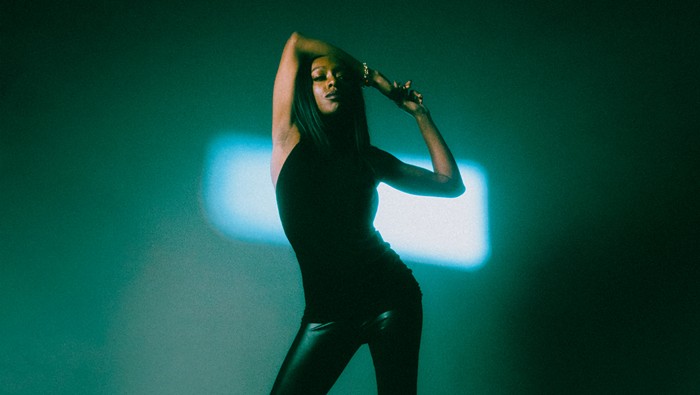It sounds elusively familiar—the echo of an impressionistic, piecemeal past that's tied not to precise events or places, but to momentary sensations. It's triggered by only the faintest suggestion: a word, a forgotten smell, a glimmer of sunlight off a girl's hair, a feeling of cool grass underneath the toes. The music of the War on Drugs is broad enough to be vague, but the feeling it evokes is sharply and personally specific. The band's debut record, Wagonwheel Blues, is populated with sprawling songs redolent of humid summer nights and lawn sprinklers, and its dense soundscapes are like the rhythm of streetlights passing overhead on the parkway.
Wagonwheel Blues is the product of years of accumulated recording, much of it at home studios in various locations. Songwriter Adam Granduciel explains, "There were different levels of home studios. Some of the stuff was done on my old digital eight-track, and some of the stuff was done at my friend's nice home studio with a tape machine and sweet gear." The result is a thickly layered album that is, at turns, both gloriously lo-fi and epically sharp, with tiny grace notes sitting alongside huge broad strokes. Each track is tinted, blurred, deliberately worried at the edges—but Granduciel's songs cut through the beautiful, heady clutter that surrounds them.
The album kicks off with the pummeling "Arms Like Boulders," a heartland rock song that blazes through a series of verses akin to Dylan's "Like a Rolling Stone." Its momentum swells during an instrumental riff led by drums and harmonica, and a meandering lead guitar sniffs around the song like a hungry dog looking for a handout. The Dylan comparison also befits Granduciel's nasal vocal on the sumptuous "Buenos Aires Beach," which pairs an almost sing-song melody with a gently martial snare; its rapid-fire lyrics spiral to a towering height before collapsing in a wordless, laughing refrain. Meanwhile, the ravishing "Taking the Farm" is poised atop a click-clack rhythm, a subway car rattling down the track, with heat-seeking organ pulsing through the song's breathy, sweltering reverb.
Following a tour with the Hold Steady in which their opening slot forced them to perform an abbreviated set, the War on Drugs is looking forward to playing a full set of material on their first West Coast dates. The band is currently a three-piece, a streamlined lineup of a group that used to be known as "the band with too many people in it."
Despite Wagonwheel's extended creation, Granduciel recognizes many of the album's best moments are spontaneous. "You get attached to different mixes, but then you put a fresh reel on and the faders are in the same position they were in for a different tune. All of a sudden you hear tracks you hadn't heard played next to each other." The roaring ballpark organ on "Needle in Your Eye #16," was one of those happy accidents, giving new life to a song that went through different iterations before springing almost fully formed on tape.
"On the eight-track, you're limited, but that's sometimes where the good stuff comes from," says Granduciel. "I don't think I could ever book 10 days in a studio and record it all there. I like to sit with it at home and fuck with it and dirty it up and see what happens."



















